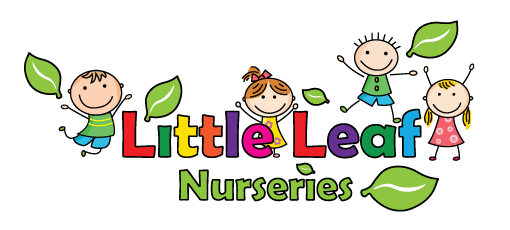Curriculum
All About Me: This is gives us general information about your child’s needs, likes, dislikes, favourite toys and activities etc. This will help the key-person and the nursery to ensure that based on the information they have on your child, appropriate routines can be established for them to meet all round care.
Settling in report: This is completed within four weeks to establish how your child is settled.
Wow Tree: We also have a ‘’Wow Tree’’, which enables our parents/carers to also share amazing experiences about their child with us. This could be in a picture form, observation notes, etc. You could share things like child’s first steps, using the potty etc. This information will help the key-person to plan activities and support your child to develop them further.
Learning through Play: At Little Leaf Nursery we believe that children can only learn by trying things themselves. We observe your child on a daily basis whilst they are engaged in activities of their choice. These observations can be spontaneous, picture or long observations. Even though we use these main observation methods, we also try other observations methods that suites your child’s learning needs. Based on observations on your child, we will then plan activities to develop their interest further. Example if your child is interested in numbers, then we plan activities around that. We will also give you feedback on a daily basis of how your child is doing.
The Early Years Foundation Stage: We follow the Early Years Foundation Stage (EYFS) which sets the standards that all early years providers must meet to ensure that children learn and develop well and are kept healthy and safe. It provides us guidelines on promoting teaching and learning to ensure your child’s ‘school readiness’ and also provide a broad range of knowledge and skills that provide the right foundation for good future progress through school and life.
Areas of Learning:
Even though there are seven areas of learning, three areas are particularly crucial for igniting Children’s curiosity and enthusiasm for learning, and for building their capacity to learn, form relationships and thrive. These Three Areas known as the Prime Areas. These are:
• Communication and language;
• Physical development; and
• Personal, social and emotional development.
We also support children in Four Specific Areas, through which the three prime areas are strengthened and applied. The specific areas are:
• literacy;
• Mathematics;
• Understanding the world;
• and Expressive arts and design.
Within our daily planning and assessment processes, we ensure that we involve activities and experiences for children, based on the following areas of learning and development
Communication and language development involves providing children opportunities to experience a rich language environment; to develop their confidence and skills in expressing themselves; and to speak and listen in a range of situations.
Physical development involves providing opportunities for young children to be active and interactive; and to develop their co-ordination, control, and movement. Children must also be helped to understand the importance of physical activity, and to make healthy choices in relation to food.
Personal, social and emotional development enables children to develop a positive sense of themselves, and others; to form positive relationships and develop respect for others; to develop social skills and learn how to manage their feelings; to understand appropriate behaviour in groups; and to have confidence in their own abilities.
Literacy development involves encouraging children to link sounds and letters and to begin to read and write. Children must be given access to a wide range of reading materials (books, poems, and other written materials) to ignite their interest.
Mathematics involves ways children can develop and improve their skills in counting, understanding and using numbers, calculating simple addition and subtraction problems; and to describe shapes, spaces, and measures.
Understanding the world involves ways children can make sense of their physical world and their community through opportunities to explore, observe and find out about people, places, technology and the environment.
Expressive arts and design involves enabling children to explore and play with a wide range of media and materials, as well as providing opportunities and encouragement for sharing their thoughts, ideas and feelings through a variety of activities in art, music, movement, dance, role-play, design and technology.
TThe progress check at 2
The Early Years Foundation Stage requires that we supply parents and carers with a short written summary of their child’s development in the three prime areas of learning and development - personal, social and emotional development; physical development; and communication and language - when a child is aged between 24 - 36 months. Your child’s key person is responsible for completing the check using information from on-going observational assessments carried out as part of our everyday practice, taking account of the views and contributions of parents and other professionals.
»Click here to download our Parent's Guide to the Early Years Foundation Stage 2012
»Click here to download The Early Years Outcome 2013
»Click here to download the Early Years Foundation Stage 2014
